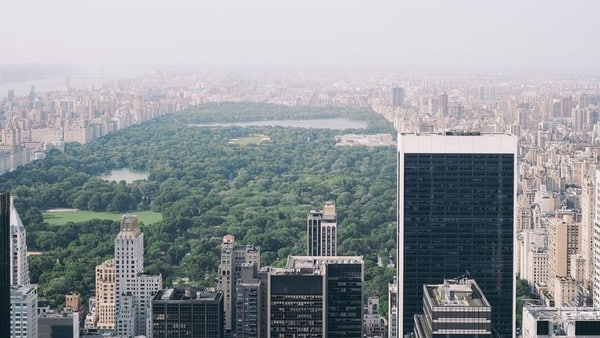A lot of people like the myriad of activities and opportunities which cities offer. Nevertheless there are generally justifiable concerns that the hectic lifestyle of city living may not be healthy. The University of Washington reported on June 3, 2016, the key to healthy urban living is finding connections to nature.
There are many people attracted to the noise and many kinds of delicious food available in cities. The lively myriad of sights, ideas, sounds, and smells in cities often come together to generate expression, creativity and innovation. However the ways in which modern society is often tuned to the fast pace of cities has a cost. There are tensions associated when people in cities are disconnected from the #natural world.
Researcher Peter Kahn says it’s hard to imagine kids in large cities have never even seen the stars. He has trouble imagining never having walked under the vastness of the star-lit sky. Kids who miss this do not have a chance to feel the awe, restoration and imaginative spark experienced in nature. Kahn, who is a professor in the Department of Psychology and School of Environmental and Forest Sciences at the University of Washington, says we are losing an awareness of how much and how fast we’re undermining our connection to nature as we build bigger cities.
Kahn and co-author Terry Hartig at Uppsala University in Sweden have pointed to research which shows cities can have an immense emotional and mental strain on people. There are more cases of mental illness and mood disorders diagnosed in urban areas. Kahn says although there are many factors to blame for this less access to nature is one of the causes.
Kahn has pointed out that there is a great deal of disease which is largely associated with our being removed from the natural environment. He believes there is a naturalness which can be achieved in cities but not necessarily at the scale we’re building or at the scale we’re headed towards with many cities. Kahn doesn’t see anything natural about a megacity.
It is the position of Kahn that we must go further than just introducing nature into urban areas. It must be made possible for people to be able to interact with natural elements using more of their senses for them to experience physical and psychological benefits of nature.
Kahn also feels there must be a shift in the collective baseline towards a better understanding and appreciation of the natural world which surrounds us. Without this he fears there will be a greater and greater development of “environmental generational amnesia,” wherein each generation creates a new idea of what’s considered environmentally normal based on the experiences they have had in childhood.
This research has been published in the journal Science. Researchers have found stress associated with urban life can be decreased with natural features, settings and processes in urban areas. There are clearly public #health benefits from trees along streets, community gardens, green roofs, parks and open spaces in cities. It’s also a good idea to have many pathways for walking and biking.
A knowledge of the psychological benefits of nature supports initiatives to more effectively integrate nature into the development of cities. The value of nature in city settings for the promotion of good health in body and mind should not be underestimated.
